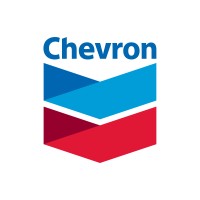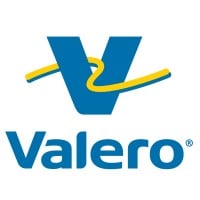Company Details
petroleosdevenezuela
25,708
129,470
211
pdvsa.com
0
PDV_3245789
In-progress


PDVSA Petróleos de Venezuela S.A. Company CyberSecurity Posture
pdvsa.comPetróleos de Venezuela S.A. is a Venezuelan state company, began operations on January 1st, 1976 and whose activities are the oil exploration, production, refining, marketing and transportation of Venezuelan oil as well as the orimulsion, chemical, petrochemical businesses and coal. We have the largest oil reserves in the world, reaching at the end of 2013, a total certified sum of 298,353 million barrels, which represent 20% of the world reserves of this resource. Also we manage 197.1 trillion cubic feet of natural gas in proven reserves, a figure that places us in eighth place worldwide. PDVSA carries out its crude processing operations through 14 refineries: six in Venezuela, and nine in the rest of the world. The national refining system is made up of 6 refineries that have a processing capacity of 1 million 303 MBD of which 52% is destined for the local market and 48% for export. The international refining system is made up of 9 refineries located in the Caribbean region, United States and Europe. Our subsidiaries and affiliates are located across the globe in Venezuela, Belgium, China, Dominican Republic, Netherlands, Sweden, the United Kingdom and the United States. Headquartered in Caracas, Venezuela, with offices and operations throughout the country, we employ more than 140,000 workers worldwide.
Company Details
petroleosdevenezuela
25,708
129,470
211
pdvsa.com
0
PDV_3245789
In-progress
Between 700 and 749

 PPDVS Global Score (TPRM)
PPDVS Global Score (TPRM)XXXX

Description: Cyberattack Paralyzes Venezuela’s Oil Giant PDVSA, Forcing Manual Operations A December 15 cyberattack on Venezuela’s state-owned oil company, *Petróleos de Venezuela SA (PDVSA)*, has crippled its digital infrastructure, forcing employees to rely on phone calls, handwritten reports, and personal messaging apps to maintain operations. The attack disrupted critical systems, including the *SCADA* platform used to manage refineries, pipelines, and compression plants as well as *SAP* software, which handles accounting, payments, and production data. With internal email and corporate portals offline, employees in key departments spanning Caracas, Barinas, Puerto La Cruz, and El Tigre have turned to *WhatsApp, Telegram, and Gmail* for communication. The outage has delayed payments to contractors and workers, while retirees report difficulties accessing pension deposits, with some required to submit personal data in person for manual processing. The attack’s origin remains unclear, with no group or nation including the U.S., which has imposed sanctions on Venezuela’s oil sector claiming responsibility. The incident underscores the vulnerability of PDVSA’s aging technological infrastructure, weakened by years of underinvestment, corruption, and U.S. restrictions on system upgrades. As of late January, the company had yet to fully restore its digital operations.
Description: Cyberattack Disrupts Venezuela’s PDVSA, Delaying Oil Operations Venezuela’s state-owned oil company, *Petróleos de Venezuela SA (PDVSA)*, is grappling with a prolonged cyberattack that has crippled critical administrative systems since early Saturday. The breach targeted networks managing export and import data at the country’s primary crude terminal, *Jose*, leaving key operations offline as of Monday. According to internal sources, PDVSA instructed employees to shut down computers, disconnect external hardware, and disable WiFi and Starlink connections following the attack. Security at company facilities was also heightened. An internal memo warned staff against restarting devices without authorization, citing concerns over potential data compromise. In a statement, PDVSA described the incident as a “sabotage attempt” that it claimed to have neutralized, asserting that oil production remained unaffected. However, the outage has forced contingency measures, delaying scheduled loadings and disrupting operations. The attack occurs amid heightened geopolitical tensions. Venezuelan President Nicolás Maduro has repeatedly accused the U.S. of orchestrating cyberattacks, including a prior hack allegedly originating from Macedonia that disrupted last year’s election results. The U.S. has denied direct involvement but has taken aggressive actions against Venezuela, including seizing a sanctioned oil tanker last week and authorizing covert CIA operations in October to counter drug trafficking and illegal migration. PDVSA’s vulnerability has been exacerbated by years of deferred maintenance and the loss of critical software licenses due to U.S. sanctions, which barred dealings with American tech providers. While the company has faced previous cyber incidents, this disruption is reportedly the most prolonged to date. The incident underscores the growing intersection of cyber threats and energy infrastructure, particularly in regions facing geopolitical and economic instability.
Description: Venezuela’s PDVSA Hit by Ransomware Attack Amid Escalating U.S. Tensions Venezuela’s state-owned oil company, PDVSA, suffered a ransomware attack last week, disrupting administrative systems and halting oil cargo deliveries, though production and refining operations remained unaffected. The company blamed the cyberattack on "foreign interests," specifically alleging U.S. involvement in coordination with domestic entities, accusing Washington of attempting to undermine Venezuela’s sovereign energy sector. The attack, which PDVSA claimed to have recovered from, forced workers to rely on manual record-keeping as systems remained offline. Multiple sources confirmed that administrative networks were still down days later, leading to the suspension of loading instructions for oil exports. At least four very large crude carriers (VLCCs) scheduled to load crude at Venezuelan ports reversed course, while a Benin-flagged tanker carrying 300,000 barrels of Russian naphtha for PDVSA also diverted to Europe without discharging its cargo. Despite the disruptions, some tankers including those chartered by Chevron under a U.S. sanctions exemption continued sailing to the U.S. Others departed in "dark mode," navigating with their tracking systems disabled. Venezuela’s oil exports averaged 952,000 barrels per day last month, according to shipping data, though the cyberattack and recent U.S. enforcement actions have added pressure. The incident follows the U.S. Coast Guard’s seizure of a VLCC carrying 1.85 million barrels of Venezuelan crude, the first such interception since sanctions were imposed in 2019. Tensions between Caracas and Washington have intensified, with Venezuela accusing the U.S. of seeking regime change to control its oil reserves. The U.S. State Department has not commented on the cyberattack allegations. PDVSA ordered employees to disconnect from corporate systems and restricted access for non-essential workers, while a shipper involved in Venezuelan oil deals confirmed that export operations remained suspended. The attack’s impact extended to Cuba, which relies on Venezuelan oil and is already facing severe power shortages.
Description: In December 2002, during a general strike in Venezuela, a port facility operated by PDVSA (Venezuela’s state-owned oil company) was targeted in a deliberate cyber attack. The attacker, likely an insider (possibly an employee involved in the strike), remotely accessed the SCADA (Supervisory Control and Data Acquisition) system controlling the port’s operations. The attacker erased all PLC (Programmable Logic Controller) programs, crippling the facility’s ability to load oil tankers. The sabotage lasted eight hours, causing Venezuela’s national oil production to plummet from 3 million barrels per day (BPD) to just 300,000 BPD a 90% reduction.The attack directly disrupted Venezuela’s oil-dependent economy, which relied heavily on exports. The temporary shutdown of the port facility contributed to broader economic instability during the strike, exacerbating fuel shortages and financial losses. While no physical damage or loss of life occurred, the targeted disruption of critical infrastructure a key sector for the nation’s revenue demonstrated the vulnerability of industrial control systems to cyber sabotage. The incident highlighted how cyber attacks on energy infrastructure could be weaponized for political or economic coercion, with cascading effects on national production and global oil markets.


No incidents recorded for PDVSA Petróleos de Venezuela S.A. in 2026.
No incidents recorded for PDVSA Petróleos de Venezuela S.A. in 2026.
No incidents recorded for PDVSA Petróleos de Venezuela S.A. in 2026.
PPDVS cyber incidents detection timeline including parent company and subsidiaries

Petróleos de Venezuela S.A. is a Venezuelan state company, began operations on January 1st, 1976 and whose activities are the oil exploration, production, refining, marketing and transportation of Venezuelan oil as well as the orimulsion, chemical, petrochemical businesses and coal. We have the largest oil reserves in the world, reaching at the end of 2013, a total certified sum of 298,353 million barrels, which represent 20% of the world reserves of this resource. Also we manage 197.1 trillion cubic feet of natural gas in proven reserves, a figure that places us in eighth place worldwide. PDVSA carries out its crude processing operations through 14 refineries: six in Venezuela, and nine in the rest of the world. The national refining system is made up of 6 refineries that have a processing capacity of 1 million 303 MBD of which 52% is destined for the local market and 48% for export. The international refining system is made up of 9 refineries located in the Caribbean region, United States and Europe. Our subsidiaries and affiliates are located across the globe in Venezuela, Belgium, China, Dominican Republic, Netherlands, Sweden, the United Kingdom and the United States. Headquartered in Caracas, Venezuela, with offices and operations throughout the country, we employ more than 140,000 workers worldwide.

Shell is a global group of energy and petrochemical companies, employing 96,000 people across 70+ countries. We serve around 1 million commercial and industrial customers, and around 33 million customers daily at our Shell-branded retail service stations. Our purpose is to power progress together b
Somos el mayor productor de Oil & Gas de la Argentina, con sólidos resultados y capacidad para llevar adelante los proyectos que convertirán al país en un exportador de energía a nivel mundial. Nuestro objetivo es convertirnos en una empresa no convencional de clase mundial y que Argentina pueda ex
Petróleos Mexicanos es la mayor empresa de México, el mayor contribuyente fiscal del país, así como una de las empresas más grandes de América Latina. Es de las pocas empresas petroleras del mundo que desarrolla toda la cadena productiva de la industria, desde la exploración, hasta la distribució

In 1967, we pioneered commercial development of Canada's oil sands – one of the largest petroleum resource basins in the world. Since then, Suncor has grown to become a globally competitive integrated energy company with a balanced portfolio of high-quality assets, a strong balance sheet and signifi

Petroliam Nasional Berhad (PETRONAS) is a leading global energy company committed to powering society’s progress in a responsible and sustainable manner. With close to 50,000 employees and a global reach spanning over 100 countries, we are ranked among the world’s largest corporations by revenue in

Our greatest resource is our people. Their ingenuity, creativity and collaboration have met the complex challenges of energy’s past. Together, we’ll take on the future. We support the LinkedIn Terms of Use (User Agreement), and we expect visitors to our page to do the same. We encourage open, liv

Valero is an international manufacturer and marketer of transportation fuels and petrochemical products. We are a Fortune 500 company based in San Antonio, Texas, fueled by nearly 10,000 employees and 15 petroleum refineries with a combined throughput capacity of approximately 3.2 million barrels pe
Transocean is a leading international provider of offshore contract drilling services for oil and gas wells. The company specializes in technically demanding sectors of the global offshore drilling business, with a particular focus on ultra-deepwater and harsh environment drilling services and opera
Fortune Global 500 Company, Bharat Petroleum is the second largest Indian Oil Marketing Company and one of the premier integrated energy companies in India, engaged in refining of crude oil and marketing of petroleum products, with a significant presence in the upstream and downstream sectors of the
.png)
As of January 6, 2026, the financial landscape has been fundamentally reshaped by a seismic geopolitical event in South America.
The US may have used cyber or advanced technology capabilities to disrupt electricity and communications in Venezuela's capital during a...
State-owned Chinese and Russian companies have some of the biggest claims on Venezuela's oil. Read more at straitstimes.com.
U.S. Cyber Command was involved in setting the stage for the operation.
Venezuela's state-run oil production and refining were operating normally on Saturday and suffered no damage from a U.S. strike to extract...
The latest edition of the Seriously Risky Business cybersecurity newsletter, now on Lawfare.
Venezuela's state-run oil company Petroleos de Venezuela (PDVSA) said a recent cyberattack has impacted its administrative system.
Petróleos de Venezuela (PDVSA), Venezuela's state-owned oil company, was hit by a cyberattack over the weekend that disrupted its export...
Venezuela's state-run oil company PDVSA has been subject to a cyberattack, it said on Monday, adding its operations were unaffected,...

Explore insights on cybersecurity incidents, risk posture, and Rankiteo's assessments.
The official website of PDVSA Petróleos de Venezuela S.A. is https://www.pdvsa.com.
According to Rankiteo, PDVSA Petróleos de Venezuela S.A.’s AI-generated cybersecurity score is 725, reflecting their Moderate security posture.
According to Rankiteo, PDVSA Petróleos de Venezuela S.A. currently holds 0 security badges, indicating that no recognized compliance certifications are currently verified for the organization.
According to Rankiteo, PDVSA Petróleos de Venezuela S.A. has not been affected by any supply chain cyber incidents, and no incident IDs are currently listed for the organization.
According to Rankiteo, PDVSA Petróleos de Venezuela S.A. is not certified under SOC 2 Type 1.
According to Rankiteo, PDVSA Petróleos de Venezuela S.A. does not hold a SOC 2 Type 2 certification.
According to Rankiteo, PDVSA Petróleos de Venezuela S.A. is not listed as GDPR compliant.
According to Rankiteo, PDVSA Petróleos de Venezuela S.A. does not currently maintain PCI DSS compliance.
According to Rankiteo, PDVSA Petróleos de Venezuela S.A. is not compliant with HIPAA regulations.
According to Rankiteo,PDVSA Petróleos de Venezuela S.A. is not certified under ISO 27001, indicating the absence of a formally recognized information security management framework.
PDVSA Petróleos de Venezuela S.A. operates primarily in the Oil and Gas industry.
PDVSA Petróleos de Venezuela S.A. employs approximately 25,708 people worldwide.
PDVSA Petróleos de Venezuela S.A. presently has no subsidiaries across any sectors.
PDVSA Petróleos de Venezuela S.A.’s official LinkedIn profile has approximately 129,470 followers.
PDVSA Petróleos de Venezuela S.A. is classified under the NAICS code 211, which corresponds to Oil and Gas Extraction.
No, PDVSA Petróleos de Venezuela S.A. does not have a profile on Crunchbase.
Yes, PDVSA Petróleos de Venezuela S.A. maintains an official LinkedIn profile, which is actively utilized for branding and talent engagement, which can be accessed here: https://www.linkedin.com/company/petroleosdevenezuela.
As of January 22, 2026, Rankiteo reports that PDVSA Petróleos de Venezuela S.A. has experienced 4 cybersecurity incidents.
PDVSA Petróleos de Venezuela S.A. has an estimated 10,646 peer or competitor companies worldwide.
Incident Types: The types of cybersecurity incidents that have occurred include Ransomware and Cyber Attack.
Detection and Response: The company detects and responds to cybersecurity incidents through an remediation measures with restoration of erased plc programs, and recovery measures with resumed tanker loading after 8 hours, and incident response plan activated with yes, and containment measures with shutdown of computers, disconnection of external hardware, wifi and starlink cutoffs, reinforced security at facilities, and recovery measures with ongoing restoration efforts, and communication strategy with internal memo to staff, public statement describing the incident as a 'sabotage attempt', and communication strategy with use of whatsapp, telegram, gmail, phone calls, and handwritten reports, and containment measures with employees ordered to disconnect from corporate systems, restricted access for non-essential workers, and recovery measures with claimed to have recovered from the attack..
Title: 2002 Venezuela Port Facility SCADA Hack During General Strike
Description: In December 2002, during the general strike in Venezuela, a port facility's SCADA system was hacked by someone (possibly an employee involved in the strike). The attacker remotely accessed the system to erase all PLC (Programmable Logic Controller) programs, halting tanker loading operations for eight hours. This caused Venezuela's national oil production to plummet from 3 million barrels per day (BPD) to 300,000 BPD.
Date Detected: 2002-12
Type: cyber-physical attack
Attack Vector: insider threat (possible)remote access
Vulnerability Exploited: weak SCADA system securityunauthorized remote access
Threat Actor: possibly an employee involved in the general strikeunknown external actor (unconfirmed)
Motivation: political (supporting the general strike)economic sabotage (disrupting oil production)
Title: Cyberattack on PDVSA Disrupts Key Administrative Systems
Description: Venezuela’s state oil company, Petroleos de Venezuela SA (PDVSA), is struggling to restore key administrative systems after a cyberattack over the weekend. The breach affected the network managing export and import data at the country’s main crude terminal of Jose, leading to delayed scheduled loadings and contingency measures. PDVSA instructed staff to shut down computers, disconnect external hardware, and cut off WiFi and Starlink connections. Security at company facilities was reinforced, and the company stated it had neutralized a 'sabotage attempt' aimed at disrupting operations, though oil output was not affected.
Date Detected: 2025-01-04
Date Publicly Disclosed: 2025-01-06
Type: Cyberattack
Threat Actor: Unknown (allegedly foreign state-sponsored, with speculation of US involvement)
Motivation: Sabotage/Disruption of operations
Title: Cyberattack Paralyzes Venezuela’s Oil Giant PDVSA, Forcing Manual Operations
Description: A December 15 cyberattack on Venezuela’s state-owned oil company, Petróleos de Venezuela SA (PDVSA), crippled its digital infrastructure, forcing employees to rely on phone calls, handwritten reports, and personal messaging apps to maintain operations. The attack disrupted critical systems, including the SCADA platform used to manage refineries, pipelines, and compression plants, as well as SAP software handling accounting, payments, and production data. Internal email and corporate portals were offline, leading to delays in payments and pension access.
Date Detected: 2023-12-15
Type: Cyberattack
Title: Venezuela’s PDVSA Hit by Ransomware Attack Amid Escalating U.S. Tensions
Description: Venezuela’s state-owned oil company, PDVSA, suffered a ransomware attack last week, disrupting administrative systems and halting oil cargo deliveries, though production and refining operations remained unaffected. The company blamed the cyberattack on 'foreign interests,' specifically alleging U.S. involvement in coordination with domestic entities, accusing Washington of attempting to undermine Venezuela’s sovereign energy sector.
Type: Ransomware
Threat Actor: Foreign interests (allegedly U.S. and domestic entities)
Motivation: Undermine Venezuela’s sovereign energy sector, alleged regime change efforts
Common Attack Types: The most common types of attacks the company has faced is Cyber Attack.
Identification of Attack Vectors: The company identifies the attack vectors used in incidents through remote access to SCADA system.

Data Compromised: PLC programs (erased)
Systems Affected: SCADA systemProgrammable Logic Controllers (PLCs)
Downtime: 8 hours (tanker loading operations halted)
Operational Impact: port facility operations disruptedoil production dropped from 3M BPD to 300K BPD

Data Compromised: Possibility of information compromise (not confirmed)
Systems Affected: Administrative networks managing export and import data at Jose crude terminal
Downtime: Ongoing as of 2025-01-06
Operational Impact: Delayed scheduled loadings, contingency measures, shutdown of computers and external connections

Systems Affected: SCADA platformSAP softwareInternal emailCorporate portals
Operational Impact: Forced manual operations, delayed payments to contractors and workers, pension access issues

Systems Affected: Administrative systems, oil cargo delivery operations
Operational Impact: Halted oil cargo deliveries, manual record-keeping required, suspension of loading instructions for oil exports
Commonly Compromised Data Types: The types of data most commonly compromised in incidents are Plc Programs (Operational Data) and .

Entity Name: Unnamed Venezuela Port Facility (oil production hub)
Entity Type: government-owned/operated port
Industry: oil and gas
Location: Venezuela

Entity Name: Petroleos de Venezuela SA (PDVSA)
Entity Type: State-owned oil company
Industry: Oil and Gas
Location: Venezuela
Size: Large (national oil company)

Entity Name: Petróleos de Venezuela SA (PDVSA)
Entity Type: State-owned oil company
Industry: Oil and gas
Location: Venezuela

Entity Name: PDVSA
Entity Type: State-owned oil company
Industry: Oil and gas
Location: Venezuela
Customers Affected: Oil export clients, including Cuba (facing power shortages due to disrupted oil supplies)

Remediation Measures: restoration of erased PLC programs
Recovery Measures: resumed tanker loading after 8 hours

Incident Response Plan Activated: Yes
Containment Measures: Shutdown of computers, disconnection of external hardware, WiFi and Starlink cutoffs, reinforced security at facilities
Recovery Measures: Ongoing restoration efforts
Communication Strategy: Internal memo to staff, public statement describing the incident as a 'sabotage attempt'

Communication Strategy: Use of WhatsApp, Telegram, Gmail, phone calls, and handwritten reports

Containment Measures: Employees ordered to disconnect from corporate systems, restricted access for non-essential workers
Recovery Measures: Claimed to have recovered from the attack
Incident Response Plan: The company's incident response plan is described as Yes.

Type of Data Compromised: Plc programs (operational data)
Sensitivity of Data: high (critical infrastructure control systems)
Data Exfiltration: no (data was erased, not stolen)
File Types Exposed: PLC configuration files

Data Exfiltration: Not ruled out

Personally Identifiable Information: Pension-related personal data (submitted in person for manual processing)
Prevention of Data Exfiltration: The company takes the following measures to prevent data exfiltration: restoration of erased PLC programs, .
Handling of PII Incidents: The company handles incidents involving personally identifiable information (PII) through by shutdown of computers, disconnection of external hardware, wifi and starlink cutoffs, reinforced security at facilities, employees ordered to disconnect from corporate systems and restricted access for non-essential workers.
Data Recovery from Ransomware: The company recovers data encrypted by ransomware through resumed tanker loading after 8 hours, , Ongoing restoration efforts, Claimed to have recovered from the attack.

Lessons Learned: Vulnerability of aging technological infrastructure due to underinvestment, corruption, and U.S. sanctions restricting system upgrades
Key Lessons Learned: The key lessons learned from past incidents are Vulnerability of aging technological infrastructure due to underinvestment, corruption, and U.S. sanctions restricting system upgrades.

Source: Cyber Incident Description

Source: Cyber incident description
Additional Resources: Stakeholders can find additional resources on cybersecurity best practices at and Source: BloombergDate Accessed: 2025-01-06, and Source: Cyber Incident Description, and Source: Cyber incident description.

Investigation Status: historical (limited public details)

Investigation Status: Ongoing

Investigation Status: Ongoing (as of late January)
Communication of Investigation Status: The company communicates the status of incident investigations to stakeholders through Internal memo to staff, public statement describing the incident as a 'sabotage attempt', Use of WhatsApp, Telegram, Gmail, phone calls and and handwritten reports.

Stakeholder Advisories: Internal memo instructing personnel not to restart or use devices without guidance
Advisories Provided: The company provides the following advisories to stakeholders and customers following an incident: was Internal memo instructing personnel not to restart or use devices without guidance.

Entry Point: Remote Access To Scada System,
High Value Targets: Plc Programs Controlling Tanker Loading,
Data Sold on Dark Web: Plc Programs Controlling Tanker Loading,

Root Causes: Inadequate Scada Security, Lack Of Access Controls, Insider Threat Risk,

Root Causes: Years of limited maintenance, loss of key software licenses due to US sanctions, outdated administrative networks

Root Causes: Aging technological infrastructure, underinvestment, corruption, U.S. sanctions restricting system upgrades
Last Attacking Group: The attacking group in the last incident were an possibly an employee involved in the general strikeunknown external actor (unconfirmed), Unknown (allegedly foreign state-sponsored, with speculation of US involvement) and Foreign interests (allegedly U.S. and domestic entities).
Most Recent Incident Detected: The most recent incident detected was on 2002-12.
Most Recent Incident Publicly Disclosed: The most recent incident publicly disclosed was on 2025-01-06.
Most Significant Data Compromised: The most significant data compromised in an incident were PLC programs (erased) and Possibility of information compromise (not confirmed).
Most Significant System Affected: The most significant system affected in an incident was SCADA systemProgrammable Logic Controllers (PLCs) and and SCADA platformSAP softwareInternal emailCorporate portals and .
Containment Measures in Most Recent Incident: The containment measures taken in the most recent incident were Shutdown of computers, disconnection of external hardware, WiFi and Starlink cutoffs, reinforced security at facilities, Employees ordered to disconnect from corporate systems and restricted access for non-essential workers.
Most Sensitive Data Compromised: The most sensitive data compromised in a breach were Possibility of information compromise (not confirmed) and PLC programs (erased).
Most Significant Lesson Learned: The most significant lesson learned from past incidents was Vulnerability of aging technological infrastructure due to underinvestment, corruption, and U.S. sanctions restricting system upgrades.
Most Recent Source: The most recent source of information about an incident are Cyber Incident Description, Bloomberg and Cyber incident description.
Current Status of Most Recent Investigation: The current status of the most recent investigation is historical (limited public details).
Most Recent Stakeholder Advisory: The most recent stakeholder advisory issued was Internal memo instructing personnel not to restart or use devices without guidance, .
Most Significant Root Cause: The most significant root cause identified in post-incident analysis was inadequate SCADA securitylack of access controlsinsider threat risk, Years of limited maintenance, loss of key software licenses due to US sanctions, outdated administrative networks, Aging technological infrastructure, underinvestment, corruption, U.S. sanctions restricting system upgrades.
.png)
SummaryA command injection vulnerability (CWE-78) has been found to exist in the `wrangler pages deploy` command. The issue occurs because the `--commit-hash` parameter is passed directly to a shell command without proper validation or sanitization, allowing an attacker with control of `--commit-hash` to execute arbitrary commands on the system running Wrangler. Root causeThe commitHash variable, derived from user input via the --commit-hash CLI argument, is interpolated directly into a shell command using template literals (e.g., execSync(`git show -s --format=%B ${commitHash}`)). Shell metacharacters are interpreted by the shell, enabling command execution. ImpactThis vulnerability is generally hard to exploit, as it requires --commit-hash to be attacker controlled. The vulnerability primarily affects CI/CD environments where `wrangler pages deploy` is used in automated pipelines and the --commit-hash parameter is populated from external, potentially untrusted sources. An attacker could exploit this to: * Run any shell command. * Exfiltrate environment variables. * Compromise the CI runner to install backdoors or modify build artifacts. Credits Disclosed responsibly by kny4hacker. Mitigation * Wrangler v4 users are requested to upgrade to Wrangler v4.59.1 or higher. * Wrangler v3 users are requested to upgrade to Wrangler v3.114.17 or higher. * Users on Wrangler v2 (EOL) should upgrade to a supported major version.
Vulnerability in the Oracle VM VirtualBox product of Oracle Virtualization (component: Core). Supported versions that are affected are 7.1.14 and 7.2.4. Easily exploitable vulnerability allows high privileged attacker with logon to the infrastructure where Oracle VM VirtualBox executes to compromise Oracle VM VirtualBox. While the vulnerability is in Oracle VM VirtualBox, attacks may significantly impact additional products (scope change). Successful attacks of this vulnerability can result in takeover of Oracle VM VirtualBox. CVSS 3.1 Base Score 8.2 (Confidentiality, Integrity and Availability impacts). CVSS Vector: (CVSS:3.1/AV:L/AC:L/PR:H/UI:N/S:C/C:H/I:H/A:H).
Vulnerability in the Oracle VM VirtualBox product of Oracle Virtualization (component: Core). Supported versions that are affected are 7.1.14 and 7.2.4. Easily exploitable vulnerability allows high privileged attacker with logon to the infrastructure where Oracle VM VirtualBox executes to compromise Oracle VM VirtualBox. While the vulnerability is in Oracle VM VirtualBox, attacks may significantly impact additional products (scope change). Successful attacks of this vulnerability can result in unauthorized creation, deletion or modification access to critical data or all Oracle VM VirtualBox accessible data as well as unauthorized access to critical data or complete access to all Oracle VM VirtualBox accessible data and unauthorized ability to cause a partial denial of service (partial DOS) of Oracle VM VirtualBox. CVSS 3.1 Base Score 8.1 (Confidentiality, Integrity and Availability impacts). CVSS Vector: (CVSS:3.1/AV:L/AC:L/PR:H/UI:N/S:C/C:H/I:H/A:L).
Vulnerability in the Oracle VM VirtualBox product of Oracle Virtualization (component: Core). Supported versions that are affected are 7.1.14 and 7.2.4. Easily exploitable vulnerability allows high privileged attacker with logon to the infrastructure where Oracle VM VirtualBox executes to compromise Oracle VM VirtualBox. While the vulnerability is in Oracle VM VirtualBox, attacks may significantly impact additional products (scope change). Successful attacks of this vulnerability can result in takeover of Oracle VM VirtualBox. CVSS 3.1 Base Score 8.2 (Confidentiality, Integrity and Availability impacts). CVSS Vector: (CVSS:3.1/AV:L/AC:L/PR:H/UI:N/S:C/C:H/I:H/A:H).
Vulnerability in the Oracle VM VirtualBox product of Oracle Virtualization (component: Core). Supported versions that are affected are 7.1.14 and 7.2.4. Easily exploitable vulnerability allows high privileged attacker with logon to the infrastructure where Oracle VM VirtualBox executes to compromise Oracle VM VirtualBox. While the vulnerability is in Oracle VM VirtualBox, attacks may significantly impact additional products (scope change). Successful attacks of this vulnerability can result in takeover of Oracle VM VirtualBox. CVSS 3.1 Base Score 8.2 (Confidentiality, Integrity and Availability impacts). CVSS Vector: (CVSS:3.1/AV:L/AC:L/PR:H/UI:N/S:C/C:H/I:H/A:H).

Get company history
















Every week, Rankiteo analyzes billions of signals to give organizations a sharper, faster view of emerging risks. With deeper, more actionable intelligence at their fingertips, security teams can outpace threat actors, respond instantly to Zero-Day attacks, and dramatically shrink their risk exposure window.
Identify exposed access points, detect misconfigured SSL certificates, and uncover vulnerabilities across the network infrastructure.
Gain visibility into the software components used within an organization to detect vulnerabilities, manage risk, and ensure supply chain security.
Monitor and manage all IT assets and their configurations to ensure accurate, real-time visibility across the company's technology environment.
Leverage real-time insights on active threats, malware campaigns, and emerging vulnerabilities to proactively defend against evolving cyberattacks.




